When it comes to managing blood sugar, most of the attention falls on carbs and sugar itself. But here’s a nutritional plot twist: protein could be your blood sugar’s secret weapon. While it’s true that watching refined carbs and sweet treats matters, the foods you do add to your plate—particularly high-quality proteins—can play a massive role in keeping those glucose levels steady and balanced. And no, this doesn’t mean loading up on mystery meat or protein shakes with mile-long ingredient lists.
In fact, the right proteins can slow digestion, reduce post-meal blood sugar spikes, and help you stay full longer—cutting down on the urge to reach for a sugary snack. Even better? Many of them are as delicious as they are functional. From budget-friendly staples like eggs and lentils to powerhouse picks like salmon and Greek yogurt, these options can easily fit into your everyday routine without feeling like a sacrifice.
Whether you’re dealing with prediabetes, managing type 2 diabetes, or just looking to eat smarter, the proteins on this list are backed by dietitians and supported by science. Each one offers a powerful combo of nutrients, from fiber to healthy fats to essential vitamins—all working together to stabilize your energy, support muscle health, and curb blood sugar chaos.
No need for extreme diets or complicated meal prep. Just real food with real benefits. Ready to make your grocery list work for your health goals? These 10 protein-packed foods might just be the change your kitchen—and your body—has been waiting for. Because when it comes to blood sugar balance, protein isn’t just part of the puzzle—it could be the piece that brings the whole picture into focus.
1. Eggs: The Perfect Breakfast Powerhouse
Just one large egg delivers 6 grams of high-quality protein with minimal impact on blood sugar. The protein-to-carb ratio makes eggs an ideal morning choice for steady energy throughout your day.
Beyond protein, eggs supply choline—a nutrient that supports liver function and metabolism. Their B vitamins help convert food into energy, while potassium assists with insulin function.
Try boiling a batch on weekends for grab-and-go breakfasts or quick snacks when hunger strikes. The combination of protein and healthy fats helps prevent the mid-morning hunger that often leads to poor snack choices.
2. Salmon: Omega-3 Rich Blood Sugar Hero
A 3-ounce salmon fillet packs an impressive 22 grams of protein without any carbohydrates to spike your glucose levels. The pink flesh signals its rich omega-3 fatty acid content, which fights inflammation linked to insulin resistance.
Regular salmon consumption supports heart health—crucial for people managing blood sugar issues who face higher cardiovascular risks. The brain-boosting benefits of omega-3s provide an added bonus for cognitive function.
Wild-caught varieties typically offer more nutrients and fewer contaminants than farm-raised options. Aim for two servings weekly to maximize benefits while keeping mercury exposure in check.
3. Sirloin Steak: Lean Protein For Lasting Energy
A modest 4-ounce sirloin delivers over 22 grams of protein that helps slow digestion and prevent blood sugar spikes. Trimming visible fat makes this cut an excellent option for health-conscious meat eaters.
The abundant vitamin B12 in steak supports nerve function and helps prevent the fatigue common with blood sugar fluctuations. Its high iron content—particularly the easily absorbed heme form—helps transport oxygen throughout your body for sustained energy.
Portion control remains key with red meat. Stick to palm-sized servings about twice weekly, paired with non-starchy vegetables for a balanced meal that won’t send glucose levels soaring.
4. Cottage Cheese: Creamy Protein That Stabilizes Glucose
Half a cup of whole-milk cottage cheese contains 13 grams of slow-digesting protein that helps maintain steady blood sugar levels between meals. The curds and whey provide different protein types that digest at varying rates for sustained release.
Calcium and phosphorus work together to support bone health—often compromised in people with long-term blood sugar issues. The vitamin A content promotes healthy vision and immune function. Morning cottage cheese topped with cinnamon (a natural blood sugar regulator) makes a perfect breakfast.
For a savory option, try it with cucumber slices, cherry tomatoes, and a sprinkle of herbs for a satisfying lunch that won’t spike glucose.
5. Peanut Butter: Satisfying Spread With Glycemic Benefits
Two tablespoons of natural peanut butter provide 8 grams of protein alongside fiber that slows digestion and prevents rapid blood sugar changes. The healthy monounsaturated fats increase satiety, helping you feel full longer.
Magnesium in peanut butter plays a crucial role in over 300 biochemical reactions, including those involved in glucose metabolism. Always choose varieties without added sugars or hydrogenated oils for maximum health benefits.
Spread it on celery sticks for a perfect snack combining protein, healthy fat, and fiber. Or blend a tablespoon into your morning smoothie with unsweetened almond milk and a small banana for a balanced breakfast that won’t send glucose levels skyrocketing.
6. Chicken Drumsticks: Affordable Protein For Better Blood Sugar
One chicken drumstick delivers around 25 grams of protein that helps prevent the blood sugar crashes leading to fatigue and cravings. The skin-on version provides satiating fat that further stabilizes glucose levels.
Choline—abundant in dark chicken meat—supports brain health while aiding the methylation processes that regulate blood sugar. Bonus: drumsticks cost significantly less than chicken breasts, making them budget-friendly for regular consumption.
Bake a batch with herbs and lemon for easy meal prep. Paired with non-starchy vegetables like roasted Brussels sprouts, drumsticks create a complete meal that keeps blood sugar steady for hours without requiring expensive ingredients.
7. Mixed Nuts: Crunchy Blood Sugar Regulators
A small handful of mixed nuts provides approximately 5 grams of protein along with fiber that helps prevent blood sugar spikes after meals. The combination of different nut varieties offers a spectrum of nutrients that support overall metabolic health.
The healthy fats in nuts slow digestion, creating a gradual release of energy instead of the quick surge and crash cycle. Studies show regular nut consumers have better long-term blood sugar control than those who avoid them.
Carry a small container of unsalted mixed nuts for emergency snacking when hunger strikes between meals. This simple habit can prevent the desperate food choices that often lead to blood sugar chaos.
8. Lentils: Plant Protein Powerhouses For Glucose Control
One cup of cooked lentils contains up to 18 grams of plant protein alongside fiber that dramatically slows carbohydrate absorption. Their low glycemic index means minimal blood sugar impact despite their carbohydrate content.
The soluble fiber in lentils feeds beneficial gut bacteria linked to improved insulin sensitivity. Their impressive magnesium content helps cells respond better to insulin signals, allowing glucose to enter cells more efficiently.
Red lentils cook in just 15 minutes, making them practical for busy weeknights. Try them in soups, curries, or cold salads with vegetables for complete meals that keep blood sugar levels remarkably stable compared to refined carbohydrate options.
9. Tofu: Versatile Plant Protein For Insulin Sensitivity
Half a cup of firm tofu delivers approximately 22 grams of complete protein containing all essential amino acids your body needs. Its neutral flavor makes it incredibly versatile for both sweet and savory blood sugar-friendly recipes.
The isoflavones in tofu may enhance insulin sensitivity—a key factor in long-term blood sugar management. Research suggests these plant compounds help reduce insulin resistance when consumed regularly.
Extra-firm varieties work beautifully in stir-fries and grilled dishes, while silken tofu blends seamlessly into smoothies for added protein without dairy. Marinate tofu in ginger, garlic, and a small amount of low-sodium soy sauce before cooking for maximum flavor without blood sugar impact.
10. Greek Yogurt: Probiotic-Rich Protein For Metabolic Health
A single serving of plain Greek yogurt contains an impressive 20 grams of protein that helps prevent blood sugar spikes by slowing digestion. The straining process removes much of the lactose (milk sugar), making it lower in carbohydrates than regular yogurt.
Live probiotic cultures in Greek yogurt support gut health, which emerging research links directly to improved glucose metabolism. The creamy texture makes it satisfying enough to replace higher-sugar desserts that can wreak havoc on blood sugar levels.
Full-fat varieties provide conjugated linoleic acid that may improve insulin sensitivity. Top with a small handful of berries and cinnamon for a blood sugar-friendly breakfast or dessert that tastes indulgent while supporting metabolic health.

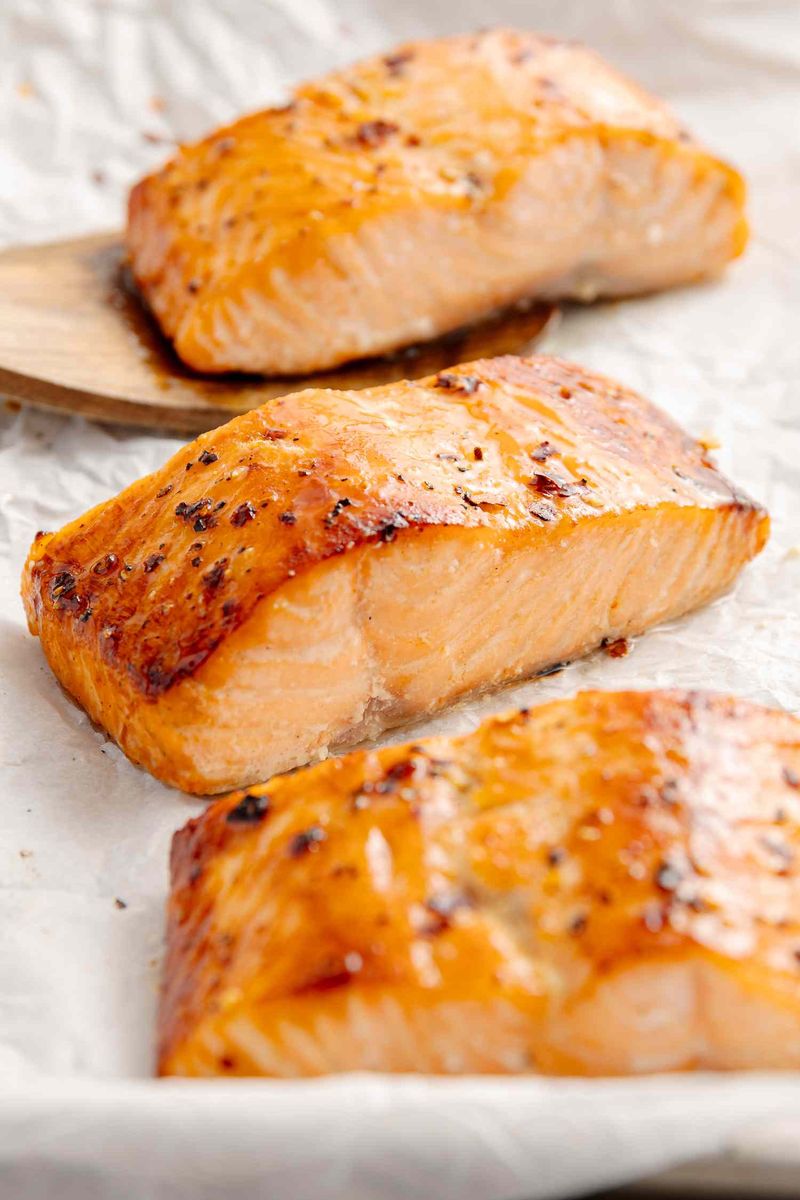

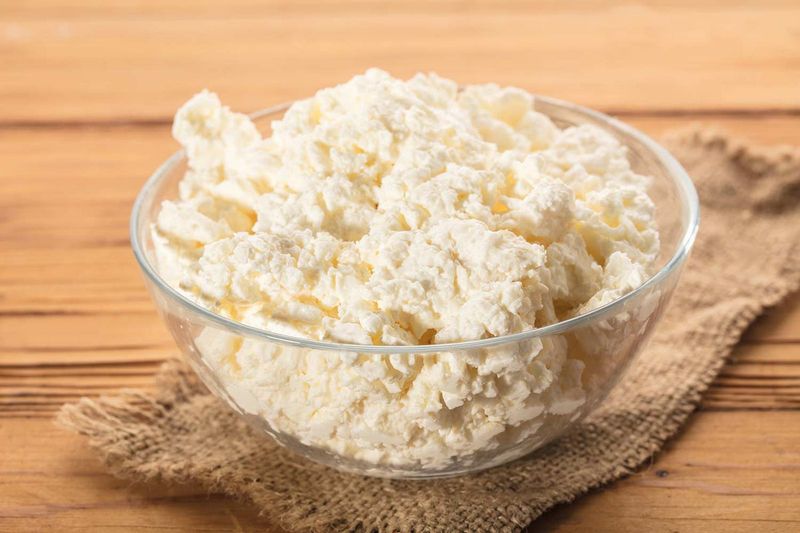
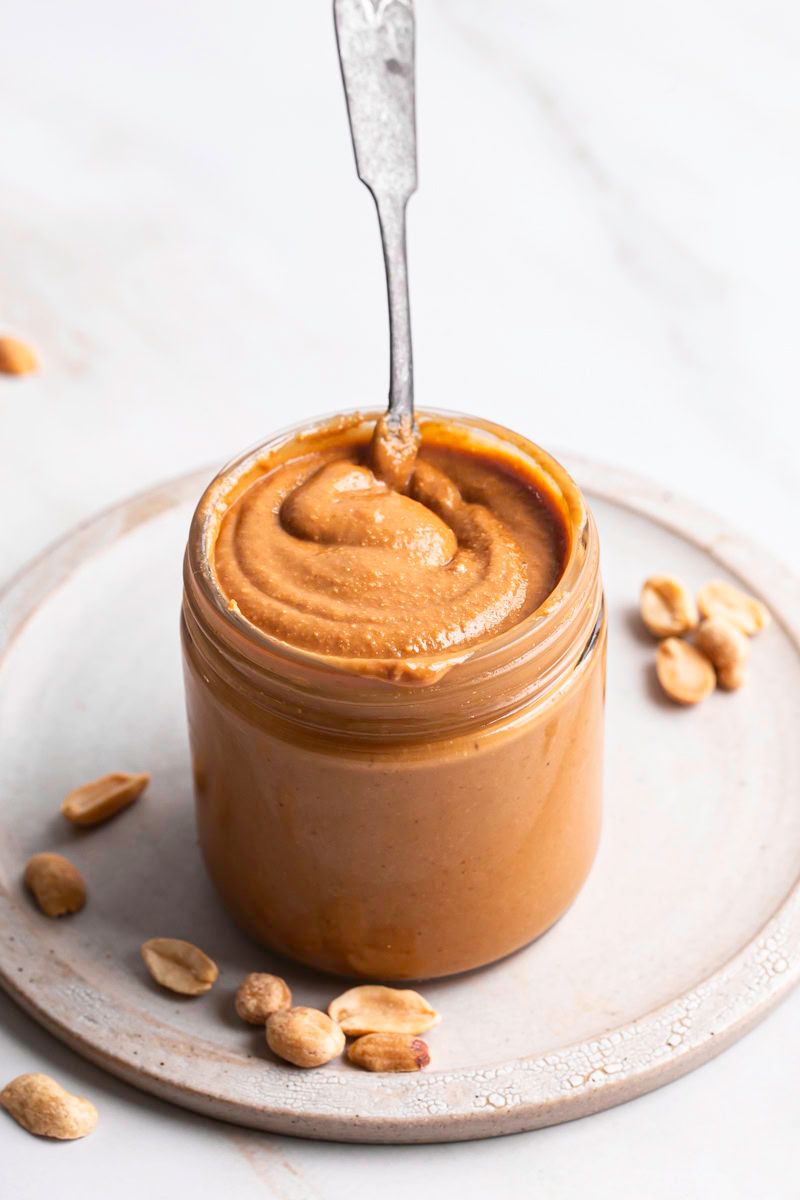

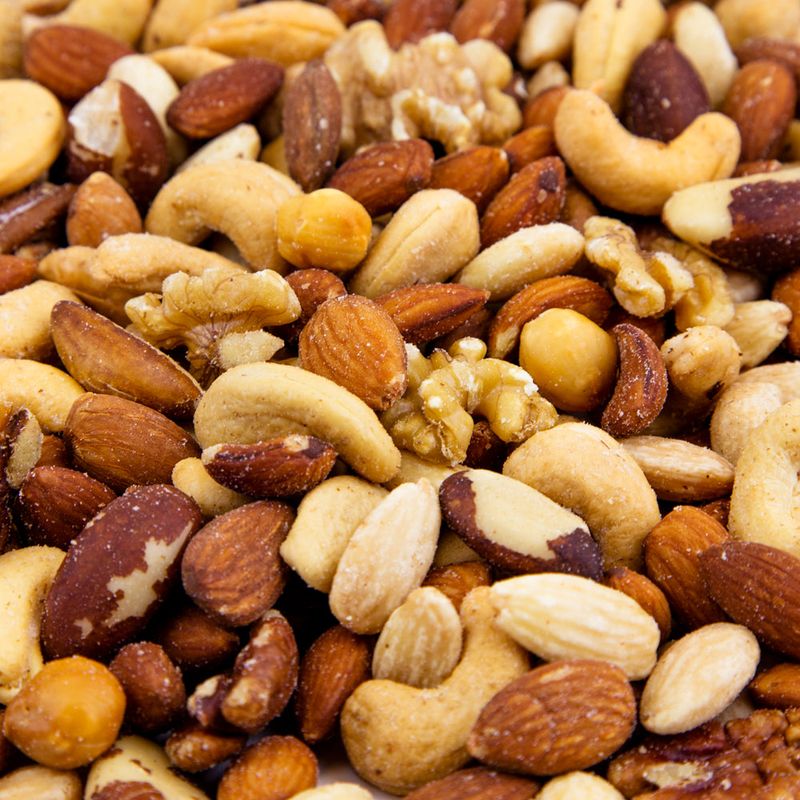
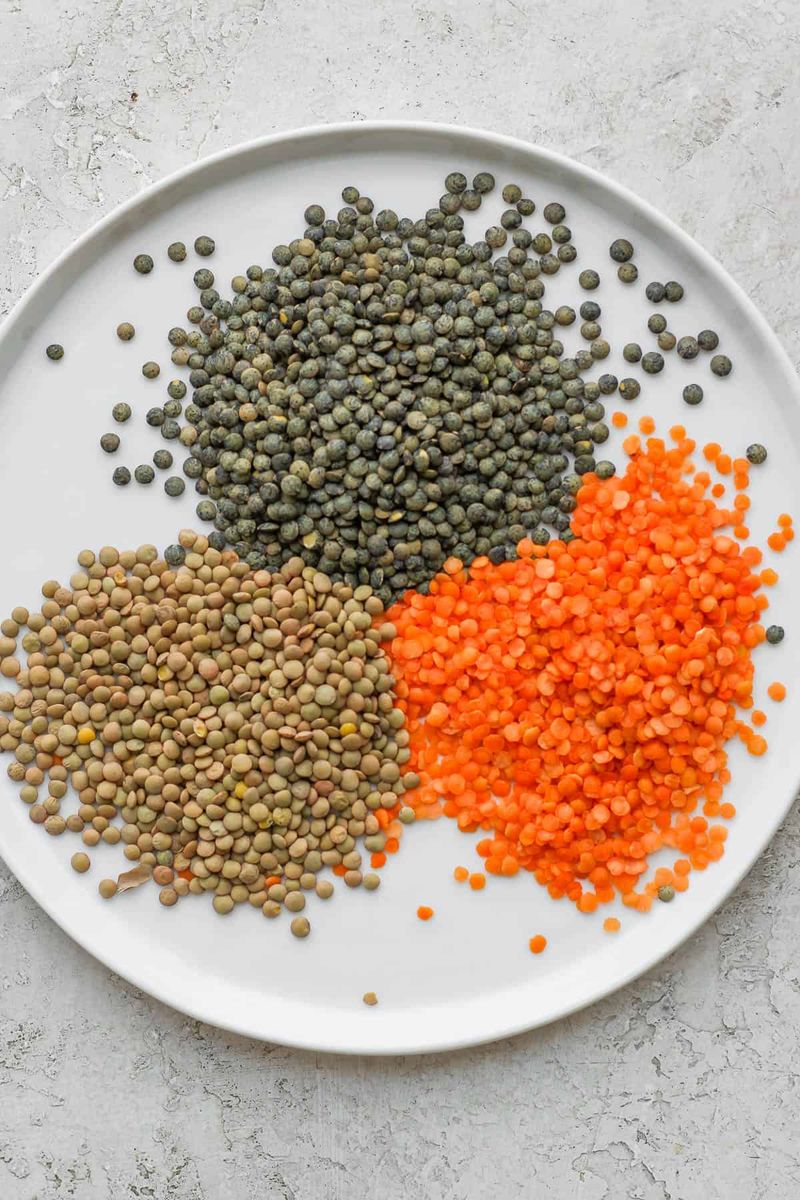
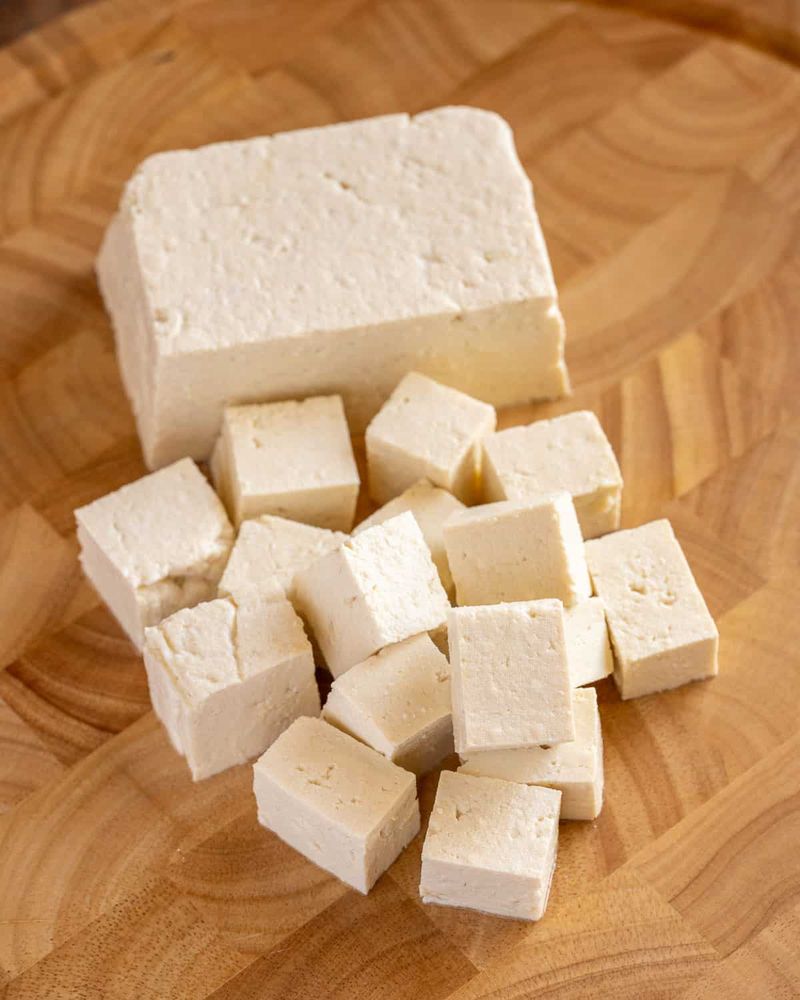
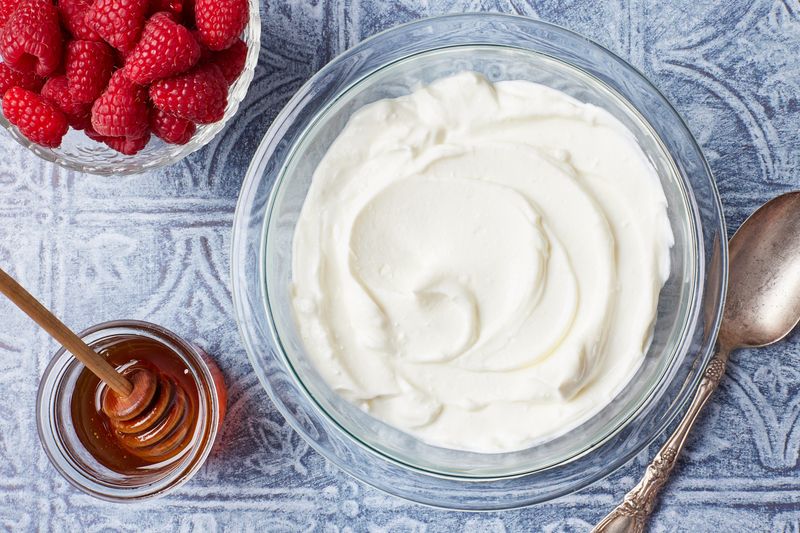
Leave a comment